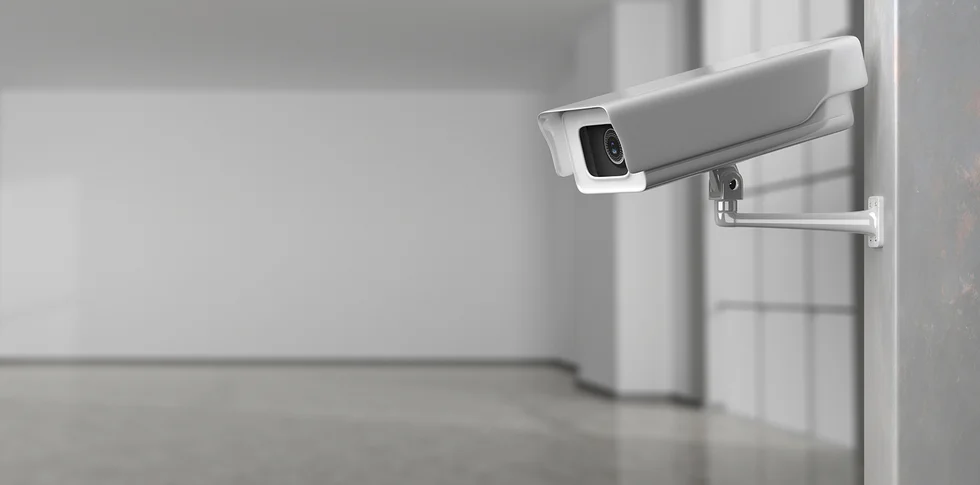For anyone who works in a retail job or who may have in the past, it’s no surprise that much of the work takes place under employer surveillance. Cameras are likely visible on the floor, in the stockroom, and near the exits. Employees might even undergo bag checks after they’ve clocked out for the day. It’s expected – a tactic meant to minimize shoplifting from customers and even discourage employee theft. It’s not necessarily an invasion of privacy at work.
However, office workers are often subject to similar levels of workplace monitoring and surveillance, with employers peeking in on their email correspondence, collaboration app chats, and browser searches. Employees typically consent to such workplace monitoring and surveillance in their employee agreements, though most folks don’t realize the lengths some employers go to to keep tabs on their workforce.
So, what is legal when it comes to employee surveillance and workplace monitoring, and what isn’t?
Is It Legal for Employers to Monitor Their Employees?
Is it legal for employers to monitor their employees in the U.S.? Or is it an invasion of privacy at work? The answer is not as straightforward as we think. While legal frameworks vary by state and context, employers generally have the right to monitor employees within reasonable limits to protect business interests. That said, excessive invasion of privacy at work may infringe on privacy rights and impact workplace morale and productivity.
In the United States, the Electronic Communications Privacy Act of 1986 protects people from many forms of surveillance, including wire, oral, and electronic communication. This helps protect employees’ privacy at work to a great extent. But the act largely pertains to government surveillance, and it’s filled with exemptions for private businesses. For workers, this means there are very few privacy protections. An employer has the right to monitor employees if any of the following are true:
- The employee agrees to the workplace monitoring and surveillance
- The information being monitored is stored on the company’s network or equipment
- The interception is for business-related reasons
What Kind of Communications Will Employers Monitor?
While some states have additional protections in place for employees, most do not, leaving employers fairly free to monitor their workforce as they see fit.
If you’re working on your employer’s device or even accessing their network through a personal device, they likely have long been able to monitor your keystrokes, browsing history, stored files, file access history, and email.
But, with the rise in remote work during the pandemic, many employers have turned to apps that not only track employees but also aggregate information into productivity reports for managers. According to the Washington Post, 30 percent of large companies adopted such technology at the start of the pandemic. Now, nearly 60 percent use it. Depending on what the employee has agreed to and the parameters established by the employer, such workplace monitoring and surveillance apps might:
- Record logon and logoff times
- Track idle times through keyboard and mouse use, or flag social media use above a set limit
- Track browser history, look out for job search sites, or anything else the company finds inappropriate
- Take periodic screenshots of your desktop or record your desktop as a part of workplace monitoring
- Monitor collaboration tools like Slack, including private messages
- Scan email for complaints or profanity
- Record ambient noise from your computer’s microphone
- Access your work phone’s photos, texts, and call history
- Record you through your computer’s webcam for workplace monitoring
- Possibly obtain your personal emails if you access your web-based account on your work computer
While the law is on the side of employers when it comes to workplace monitoring, employers still have to weigh morale and employee trust when choosing what to monitor and for what purpose.
Employers may choose to monitor employees for many legitimate business reasons, including guarding trade secrets, protecting their network from security threats, and ensuring their network is not used for illegal purposes. However, more intrusive monitoring – especially when it’s just for the sake of productivity tracking – may rankle employees.
Protect Your Privacy at Work
While it’s common for folks to mix in some personal tasks and downtime during the workday, be aware that your employer is likely monitoring you in some form. If you’d like your personal accounts and devices to remain private, make a practice of not accessing your work network on your own laptop or phone.
Consider steering clear of your web-based email or social media accounts while on your business laptop. Also, remember that your correspondence – whether it’s an email with a coworker about a frustrating manager or a Slack message about another team – is almost certainly not private. If you’re working from home, consider how your employer may be monitoring you when choosing your location.
Consult with Us to Uphold Your Right to Privacy at Work
The increase in remote work and productivity monitoring creates new legal and ethical questions related to privacy at work. However, employers do still need to demonstrate a legitimate reason for monitoring their employees. If you believe you’ve been monitored unfairly, or if you think you’re being retaliated against after a complaint, it’s worth speaking to an attorney. At Barrett & Farahany, we are happy to answer any questions about invasion of privacy at work. Please contact us to speak to one of our attorneys.


